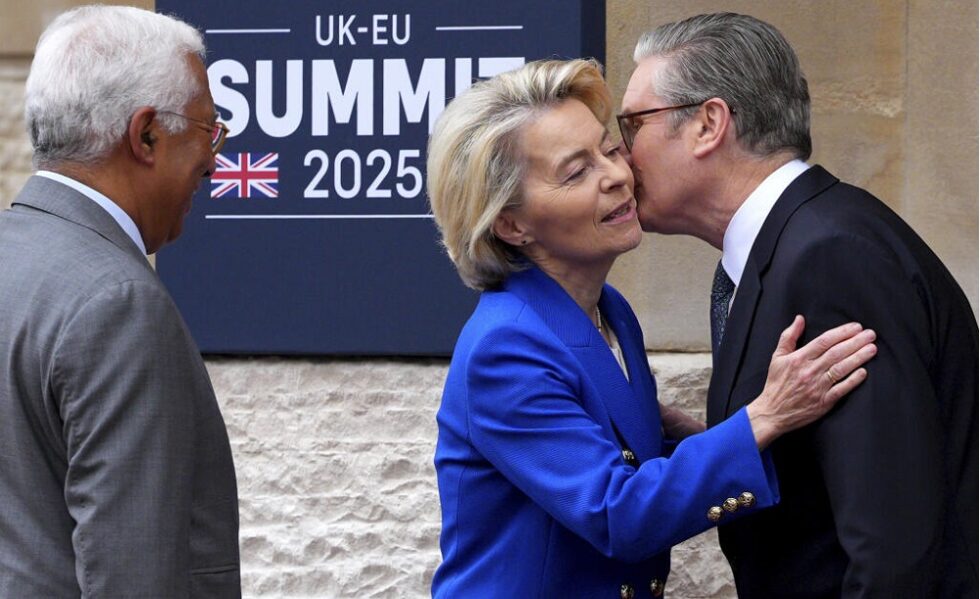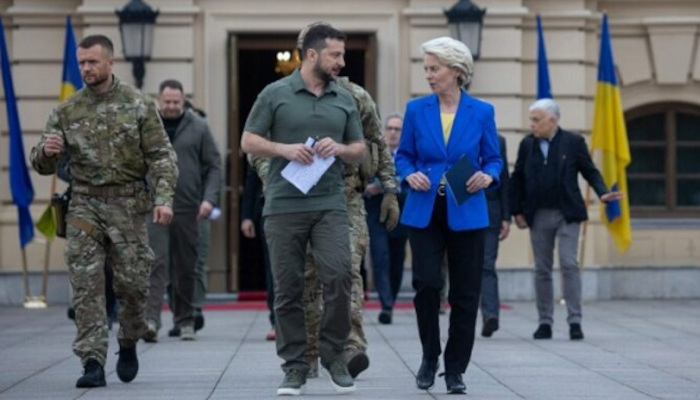
The agreement signed in London by the United Kingdom and the European Union confirms what we have been seeing throughout this year, namely that Britain and Europe are getting closer again after the divisive nine years since the Brexit referendum.
Yet to get to this agreement required the British prime minister, Sir Keir Starmer, to have enough courage to treat relations with the EU as being technical and boring rather than highly political and toxic. We knew Starmer was very capable of being boring. What we did not know was how courageous he was prepared to be.
The truth is that issues such as fishing rights in each other’s waters and veterinary rules governing food and livestock trade should always be considered boring, especially when they are being negotiated at the same time as issues of war and peace, and the security of our entire continent in the face of Russian bombs and missiles.
It took the craziness of pro-Brexit Conservative governments led by Boris Johnson and (briefly) Liz Truss to turn these technical questions into matters of national sovereignty, into stories of a brave independent Britain fighting against hostile foreign predators such as French fishermen and the judges of the European Court of Justice.
What Starmer and the EU negotiators have done is to push the next argument about fishing rights forward 12 years to 2037, beyond the next two British general elections, while making some sensible compromises about food and agriculture which should allow both sides to export more easily into each other’s markets. They have not yet reached full agreement on allowing young people to study and work more easily in each other’s countries, nor on how to reconnect Britain’s electricity grid with the EU’s still-not-single electricity market, but final deals on those and other issues seem to be on the way.
Anti-EU forces remain strong in British politics: Nigel Farage’s Reform Party is leading the opinion polls, and both Farage and the currently weak Conservative Party have immediately attacked the fishing and food deals as being betrayals of national sovereignty. What Starmer now needs to do is to show that this kind of populism on behalf of a tiny number of fishermen is pathetic, petty and anti-patriotic.
The big prize both for Europe and Britain is coming in defence and security cooperation, and Starmer’s task is to communicate the importance of that prize clearly to a British public which is traditionally very supportive of the military and of defence industries. This should not be difficult, given a strong awareness of the war in Ukraine, of Russia’s past assassinations on British soil using illegal nerve agents, and given an equally clear awareness that under Donald Trump America can no longer be relied upon for Britain’s defence.
This deal must not be over-interpreted: this is not a first British step towards applying to rejoin the EU, as Europe remains too toxic an issue in British politics. But it can be an important step towards a more courageous approach to collaboration, on both sides of the English Channel, and towards an acceptance that geography and economic integration mean that our strategic interests will always be aligned on the most important issues. And, it is to be hoped, a step towards showing that at last many of the technical issues surrounding our commercial relationship can be considered too boring to be argued about in polite company.









